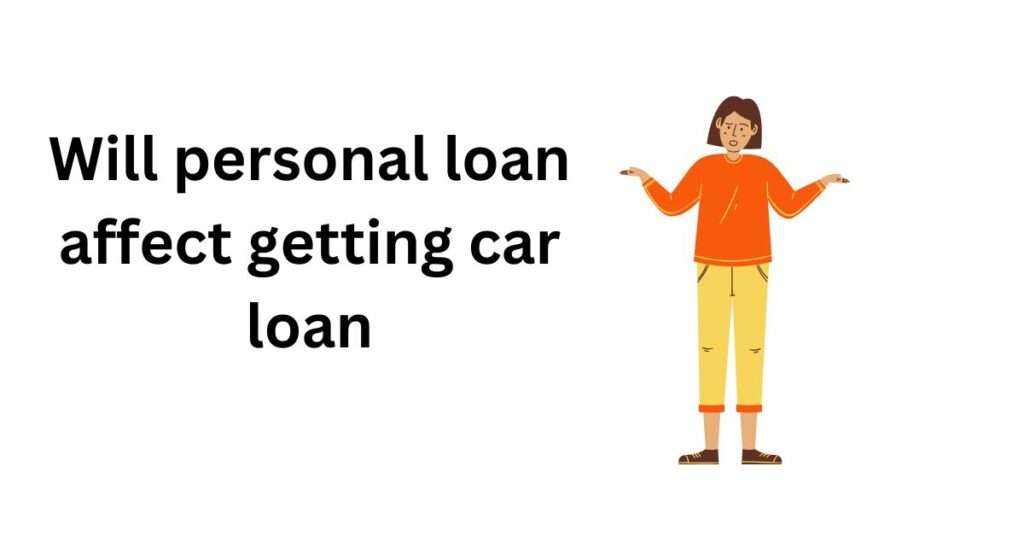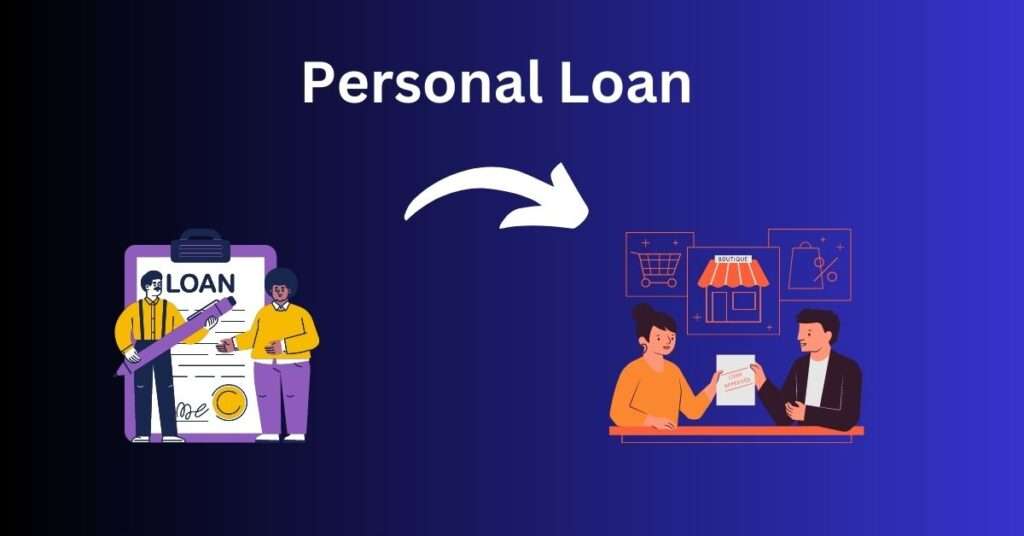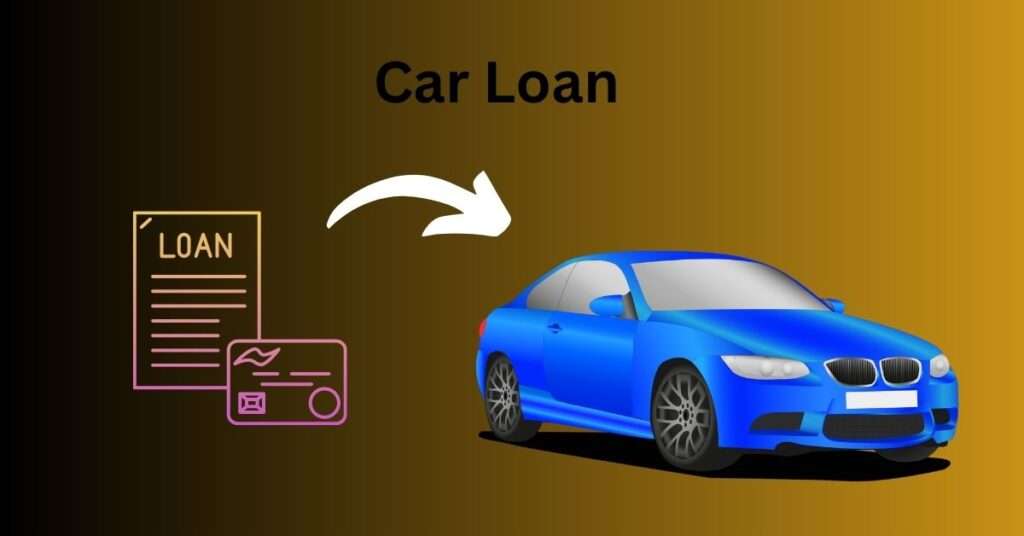Table of Contents

Introduction
When it comes to purchasing a car, many individuals opt for financing options such as car loans. However, if you’ve previously taken out a personal loan or are considering doing so, you may wonder how it will impact your ability to secure a car loan. This article aims to provide clarity on the matter, exploring the potential effects of a personal loan on obtaining a car loan, and shedding light on important factors that lenders consider during the loan application process.
Understanding Personal Loans
Definition of Personal Loans

A personal loan is a sort of loan that you can obtain for private purposes including debt consolidation, home improvement finance, or unforeseen costs. Personal loans are often unsecured, which means that no security is needed.
How Personal Loans Work
With a personal loan, you borrow a certain amount from the lender, who then requires repayment in a set number of installments over a predetermined time. Depending on the lender, loan amount, and your creditworthiness, personal loan terms can change.
Pros and Cons of Personal Loans
Pros:
- Flexibility: Personal loans can be structured in a variety of ways. You can spend the money any thing you like.
- No Collateral Needed: Unlike auto loans, personal loans are usually unsecured, thus no collateral, such as a car title, is necessary.
- Quick Approval: When compared to auto loans, personal loans frequently have a quicker approval process, making it easier for you to get money.
Cons:
- Higher Interest Rates: Because personal loans entail a greater risk for lenders than secured loans like vehicle loans, they may have higher interest rates.
- Creditworthiness Matters: When establishing eligibility and interest rates for personal loans, lenders take into account your credit history and credit score.
- Limited Loan Amounts: Personal loans’ maximum borrowing amounts may be smaller than those for auto loans.
Exploring Car Loans
Definition of Car Loans

A loan type expressly created to fund the purchase of a vehicle is known as a car loan, sometimes known as an auto loan or a vehicle loan. Car loans are secured loans, which means the actual car is used as security for the loan.
How Car Loans Work
You receive a loan to buy a car when you apply for a car loan. The car is kept by the lender as security up until the debt is paid off in full. Lender has the right to take back the car if you don’t make payments.
Pros and Cons of Car Loans
Pros:
- Lower Interest Rates: In comparison to unsecured personal loans, car loans often have lower interest rates. The car serves as collateral, lowering the lender’s risk.
- bigger Loan Amounts: Because car loans are dependent on the value of the vehicle being purchased, they frequently give you access to bigger loan amounts.
- Easier Approval for Lower Credit ratings: Compared to personal loans, car loans might be more readily available to people with lower credit ratings.
Cons:
- Restricted Usage: Auto loans are only to be used to buy a car and cannot be used for other things.
- Collateral Requirement: Car loans often require collateral in the form of the actual vehicle, which means that if you don’t make your payments on time, you could lose your car.
- Total Loan Amount: The actual worth of the car won’t be loaned to you. Instead, banks and other lenders often finance 80% of a car’s worth, with occasional exceptions to 90%. That implies that you are responsible for paying the remainder of the cost of the car.
Tips for Managing Personal and Car Loan Applications
A. Plan and Budget Before applying for any loan, it’s crucial to assess your financial situation and create a comprehensive budget. Determine your monthly income, expenses, and existing debt obligations. This will help you understand how much you can afford to borrow and comfortably repay without stretching your finances too thin.
B. Improve Creditworthiness Maintaining a healthy credit score is vital for loan approvals. Make timely payments on all your debts, including personal loans, credit cards, and utility bills. Reduce your overall debt-to-income ratio by paying down existing debts. Regularly review your credit report to ensure accuracy and dispute any errors promptly.
C. Communicate with Lenders If you have an existing personal loan and plan to apply for a car loan, consider reaching out to potential car loan lenders. Discuss your financial situation, including your personal loan obligations, and inquire about their specific lending criteria. Lenders may be able to provide guidance on the potential impact of your personal loan on a car loan application.
D. Save for a Down Payment If you anticipate that your personal loan may affect your ability to afford a down payment, start saving diligently. Having a substantial down payment demonstrates financial stability and reduces the loan amount, making it more attractive to lenders. Explore options for increasing your savings, such as cutting back on expenses or exploring additional income sources.
E. Provide Proof of Income and Stability When applying for a personal loan, lenders want to ensure that you have a stable income to meet the loan repayments. Prepare documentation, such as pay stubs, tax returns, and bank statements, to demonstrate your income and financial stability. This evidence reassures lenders that you can handle multiple loan obligations.
Conclusion (will a personal loan affect getting a car loan?)
While a personal loan can have implications for obtaining a car loan, it doesn’t necessarily mean you won’t be eligible. Lenders consider various factors, including debt-to-income ratio, credit history, and affordability. By managing your personal loan responsibly, improving your creditworthiness, and planning strategically, you can increase your chances of securing a car loan. Remember to communicate with lenders and explore different options before making a final decision. With careful consideration and financial diligence, you can navigate the loan application process effectively and drive away with your dream car.
FAQ
- Can I get a personal loan if I currently have a car loan?
- Yes, it is possible to obtain a personal loan even if you already have a car loan. However, several factors, such as your creditworthiness, debt-to-income ratio, and lender policies, will influence your eligibility and loan terms.
- Will having a car loan affect my chances of getting approved for a personal loan?
- Having a car loan can impact your eligibility for a personal loan. Lenders consider factors like debt-to-income ratio, credit scores, and collateral when assessing loan applications. However, with a good credit history and financial stability, you can still qualify for a personal loan.
- How does my debt-to-income ratio (DTI) affect my ability to get a personal loan with a car loan?
- Your debt-to-income ratio compares your monthly debt obligations to your income. If your car loan significantly contributes to your overall debt burden, it may affect your DTI and reduce your eligibility for a personal loan. Lenders generally prefer a lower DTI to ensure borrowers can comfortably manage loan repayments.
- Can I consolidate my car loan and personal loan into a single loan?
- Yes, loan consolidation is an option. By taking out a personal loan to pay off your car loan, you can combine both debts into a single loan with potentially better terms. Loan consolidation simplifies repayment and may provide an opportunity to secure a personal loan while eliminating the burden of a separate car loan.
- Should I communicate with my car loan lender before applying for a personal loan?
- It is advisable to communicate with your car loan lender before applying for a personal loan. Inform them about your intentions and discuss any potential impact on your current loan terms. Some lenders may offer flexibility or guidance based on your unique financial circumstances.